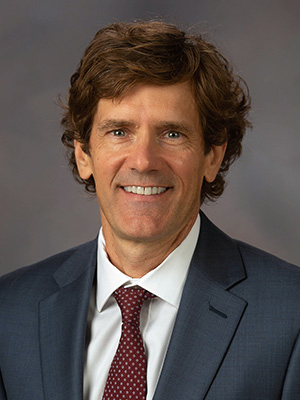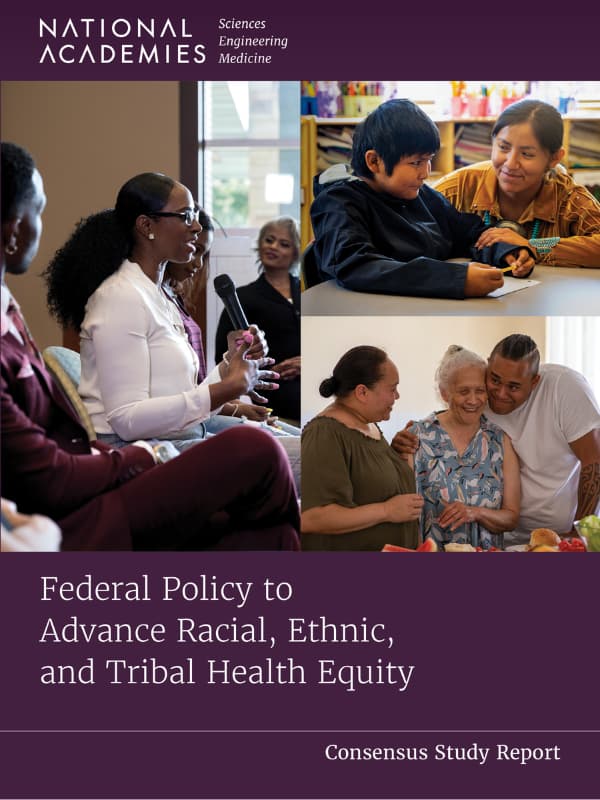Dobbs serves on national committee making recommendations on health equity

Medical Center faculty and staff often are recognized regionally, nationally and internationally for their academic or medical achievements. These accolades place UMMC among health science centers worldwide.
Dobbs serves on national committee making recommendations on health equity

Dr. Thomas Dobbs, dean of the John D. Bower School of Population Health, served on a national committee that worked for more than a year on a recent report about health equity, funded by the U.S. Department of Health and Human Services.
Improving health equity in the United States comes down to three mandates, according to the new report: The president should create a permanent federal body responsible for improving racial, ethnic and tribal equity; Congress should design a score card to evaluate how proposed federal legislation could impact future health equity; and federal agencies should conduct an equity audit of current policies.
Those are the recommendations from a National Academies of Sciences, Engineering, and Medicine committee appointed to conduct an analysis of federal policies that contribute to preventable and unfair differences in health outcomes by racial and ethnic minority populations.
The National Academies, which operate under an 1863 congressional charter signed by President Abraham Lincoln, are private, non-profit institutions that provide independent, objective analysis and advice to solve complex problems and inform public policy decision.
The conclusions of the committee of 17 health equity and public policy national leaders identify the most promising approaches to policy change.
Their findings are of particular significance in the state and at the University of Mississippi Medical Center.
 “This report is specifically applicable to Mississippi and the communities UMMC serves as Mississippi has the worst health outcomes in the country,” said Dobbs. “Poverty, rurality and the ongoing legacy of racism have major implications for our state.
“This report is specifically applicable to Mississippi and the communities UMMC serves as Mississippi has the worst health outcomes in the country,” said Dobbs. “Poverty, rurality and the ongoing legacy of racism have major implications for our state.
“From a healthcare perspective, distrust of the medical establishment is prevalent in minority populations. We must find ways to close the trust gap, such that we can effectively serve those in need of our services.”
According to the report, Federal Policy to Advance Racial, Ethnic, and Tribal Health Equity, education, income, health care access and neighborhoods all play a role in the pervasiveness of racial, ethnic and tribal health inequity in the U.S.
“The health inequities experienced by millions of people living in the U.S. today are in part the result of past and current policies that exclude or deprioritize these populations — putting them at a disadvantage that affects their well-being and life expectancy,” said Sheila Burke, the committee’s co-chair and an adjunct lecturer at the John F. Kennedy School of Government at Harvard University. “The time to act is now, and we lay out specific steps in our report that the federal government can take to advance health equity.”
Members of racial and ethnic minority groups experience disproportionately higher rates of conditions including heart disease, infant mortality and maternal death.
They also die earlier: The life expectancy for the non-Hispanic white population was 78.9 in 2019, compared to 75.3 for Black and 73.1 for American Indian and Alaska Native populations.
“Health inequities drive premature death, disability, and undermine prosperity,” Dobbs said. “It is well recognized that racial minorities and rural communities experience profound health disparities. Federal policies, and how they are implemented, can either help address these disparities or exacerbate them.”
Dobbs said the report provides a detailed background of the issues and a roadmap for using federal policy to improve health outcomes.
The issues affect all Americans – regardless of socioeconomic background – because health disparities drive up healthcare spending and undermine economic vitality, he said.
“For Mississippi to achieve better health outcomes, we must recognize all the things that go into supporting people to be healthy and prosperous. Good education, economic opportunities and a compassionate health system are essential elements.”
Federal and state policies have a great influence on how communities have access to those opportunities, Dobbs said.
“From an individual patient perspective, we need to be sensitive to the global needs of our patients. If barriers such as transportation, food insecurity and housing keep our patients from accessing care, no level of technological sophistication can bring health to those who need us.”


